Throughout the past 10+ years of working in a mix of publishing and academic environments, I’ve learned that craft books are hit and miss. Some students and writers really love and depend on them, whereas others feel like after a while, they get a bit stale or repetitive or maybe aren’t giving them the helpful push or inspiration they wanted. Personally, I was the type of writer and student who devoured craft books. I tend to be a learner who will rewrite notes and passages from books to help with memory retention and understanding, so hearing the same thing more than once, or hearing different iterations of a certain topic was something that worked well for me and helped me as an artist; however, I can understand how the need for that changes and how as we evolve as writers, at some point, we might need something else, something different to help us continue improving our creative theory and approach to our art.
I have no doubt that you’re all familiar with Stephen King’s On Writing: A Memoir of the Craft, and if you’re not, definitely add it to your list because it’s fabulous and educational and covers all the questions you’ll have and want to ask, but before I start with my unconventional recommendations, let me first talk about how I define a craft book. To me, a craft book is a book that helps you with your craft. End of sentence. I stretch this idea to include artist memoirs, collected essays that define and interact with what genre and form mean, to inspirational texts and psychological reads on creativity. I tend to believe that anything that creates a spark, that ignites passion and curiosity and excitement can help us hone our craft and explore our voice, so trust the process here and come along for a ride.
![]() "Catching the Light" by Joy Harjo
"Catching the Light" by Joy Harjo
I recently finished reading this and it made me want to spend the next three days attached to my computer while simultaneously painting and listening to jazz. I know, go ahead and roll your eyes (I would, too), but what I mean here is that this small book inspired me so much that all I wanted to do was create and surround myself with art. Harjo talks about the importance and responsibility of creating, but also the joy and the spirituality of poetry and music and identity. It’s a powerful, short read that will pull you out of a slump, motivate you to use your voice, and most importantly, to honor the artist and activist within.
Get Catching the Light at Bookshop or Amazon
![]() "The Rose Metal Press Field Guide to Prose Poetry: Contemporary Poets in Discussion and Practice" edited by Gary L. McDowell and F. Daniel Rzicznek
"The Rose Metal Press Field Guide to Prose Poetry: Contemporary Poets in Discussion and Practice" edited by Gary L. McDowell and F. Daniel Rzicznek
I love using this book when I teach poetry, and it’s a collection I find myself coming back to now and again when I need a dose of encouragement or creativity. It’s not a book that is going to teach you how to write poetry in the sense that it’s going to lecture on line and punctuation and theory. What it is going to do though, is show you how different poets interpret the prose poem in their own work while showcasing what the form and the genre of poetry means to them. Sometimes for me, that’s more important than a how-to, especially because I struggle with starting sometimes, so when I hear people talk about how and why they make the decisions they do and what keeps them in that space of creating, it gives me confidence and support when I sit down in front of the blank screen and start asking myself some hard questions.
They also have a Field Guide to writing flash fiction and nonfiction, too.
Get The Rose Metal Press Field Guide to Prose Poetry at Bookshop or Amazon
![]() "M Train" by Patti Smith
"M Train" by Patti Smith
This one might seem odd to include on this list, but this book moved me and changed me. Most people know that I’m a huge Patti Smith fan, but I’ve deeply connected with her memoirs and photography as a human first and a poet second. She writes about pain and grief and art in a way that embraces the vulnerable, showcases the softness, and yet still proudly shows its scars, and M Train was this quiet book of honesty and travel and soul that spoke to me and made me appreciate what it means to write, but not in a career or capitalistic way; it had heart and it bled and it made me think about magic and life and breath and how short of a time we all have on this planet. She wrote about poets who inspired her, pilgrimages that she took, totems that she’s collected throughout her life, and it made me take a hard look at myself and my goals and reminded me why I picked up a pen in the first place. I’ve recently been working through her photography release, A Book of Days, and I’m also looking forward to reading her contribution to Yale’s Why I Write series, which she’s titled Devotion.
Get M Train at Bookshop or Amazon
![]() "Catching the Big Fish: Meditation, Consciousness, and Creativity" by David Lynch
"Catching the Big Fish: Meditation, Consciousness, and Creativity" by David Lynch
I enjoy David Lynch, as I’m sure most of us do, and I came to him first through his short films and his artwork, and then later on after diving into his filmography, I stumbled into the Row Cinema Theatre in Pittsburgh one day and caught a viewing of the documentary, The Art Life, directed by Jon Nguyen. That movie should be on every artist’s watch list, but another piece of Lynch’s art that touched me and continues to influence me is his book Catching the Big Fish. It’s an odd little thing to include on this list, but I’ve read it two or three times now and I always find myself taking something new from it and from his journey, and when I last read it, it really hit me differently because meditation has become such a big part of my life now (subconsciously, probably thanks to David Lynch, honestly). This is a quick read about a fascinating artist and the powers of unlocking our imagination. Grab a cup of black coffee, snuggle into a cozy café, and dig into this one when you can.
Get Catching the Big Fish at Bookshop or Amazon
![]() "The Storytelling Animal: How Stories Make Us Human" by Jonathan Gottschall
"The Storytelling Animal: How Stories Make Us Human" by Jonathan Gottschall
I’ve always been a student of literature, and I’ve always wanted to tell stories, so the title of this book would have already grabbed me if my brother hadn’t physically handed it to me one day. I have so many tabs and notes written throughout this text, and while it’s been some time since I’ve read it, I remember being fascinated by how it connected and explored storytelling as a tradition, as an art form, and as a way of life. It made me think about art for art’s sake, about content creation for money vs. entertainment vs. pure joy, and it gave some historical context to how and why we’re so captivated by a good story and how it teaches us about what it means to be human.
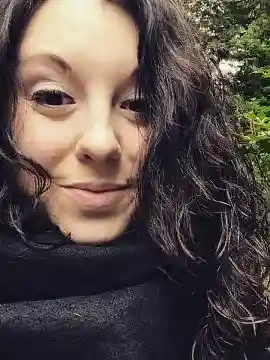
About the author
Stephanie M. Wytovich is an American poet, novelist, and essayist. Her work has been showcased in numerous venues such as Weird Tales, Gutted: Beautiful Horror Stories, Fantastic Tales of Terror, Year's Best Hardcore Horror: Volume 2, The Best Horror of the Year: Volume 8, and more.
Wytovich is the Poetry Editor for Raw Dog Screaming Press, an adjunct at Western Connecticut State University, Southern New Hampshire University, and Point Park University, and a mentor with Crystal Lake Publishing. She is a member of the Science Fiction Poetry Association, and an active member of the Horror Writers Association.
Her Bram Stoker Award-winning poetry collection, Brothel, earned a home with Raw Dog Screaming Press alongside Hysteria: A Collection of Madness, Mourning Jewelry, An Exorcism of Angels, Sheet Music to My Acoustic Nightmare, and most recently, The Apocalyptic Mannequin. Her debut novel, The Eighth, is published with Dark Regions Press.
Follow Wytovich via her Substack and on Twitter @SWytovich.
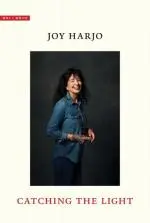 "Catching the Light" by Joy Harjo
"Catching the Light" by Joy Harjo
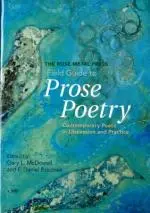 "The Rose Metal Press Field Guide to Prose Poetry: Contemporary Poets in Discussion and Practice" edited by Gary L. McDowell and F. Daniel Rzicznek
"The Rose Metal Press Field Guide to Prose Poetry: Contemporary Poets in Discussion and Practice" edited by Gary L. McDowell and F. Daniel Rzicznek
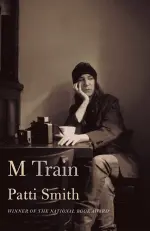 "M Train" by Patti Smith
"M Train" by Patti Smith
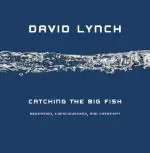 "Catching the Big Fish: Meditation, Consciousness, and Creativity" by David Lynch
"Catching the Big Fish: Meditation, Consciousness, and Creativity" by David Lynch
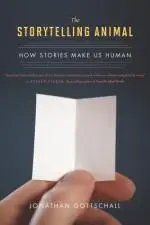 "The Storytelling Animal: How Stories Make Us Human" by Jonathan Gottschall
"The Storytelling Animal: How Stories Make Us Human" by Jonathan Gottschall








